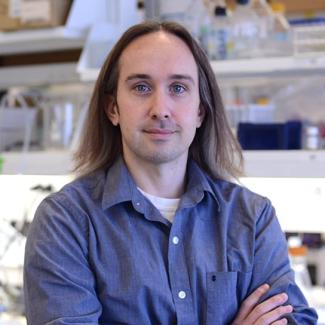Event
Rewired regulatory pathways involving retrotransposons impact reproduction and early development
Dr. Andrew Modzelewski, Penn Vet School

Abstract: Throughout evolution, viruses and mobile elements have hijacked cellular systems to copy/paste themselves throughout mammalian genomes, giving rise to Retrotransposons. While 2% of the human genome encodes proteins, ~48% is so-called “Junk DNA” that originates from retrotransposons. Most are inactive, but few “relics” retain activity and influence nearby genes. Disruption of retrotransposons results in embryonic lethality, suggesting unknown but essential functions. Rare cases where insertions disturb important gene functions has led to an “US versus THEM” model. However, this model may be an over-simplification, failing to reflect symbiotic relationships developed through co-evolution.
The "ModzLab" studies the phenomenon of retrotransposon reactivation that is essential and intentional in embryo development. While silenced in most tissues, unintentional retrotransposon reactivation is also observed in cases of epigenetic breakdown associated with aging, disease and cancer. Using a highly efficient electroporation-based embryo editing method (CRISPR-EZ) I developed, we generated 5 retrotransposon deletions mouse lines, each impacting different aspects of early development and revealing the first essential retrotransposon in mammalian development. Once regarded as parasitic DNA, we are now realizing retrotransposons can be co-opted by the host as integral gene regulatory elements.
Twitter/X: @TheModzLab
